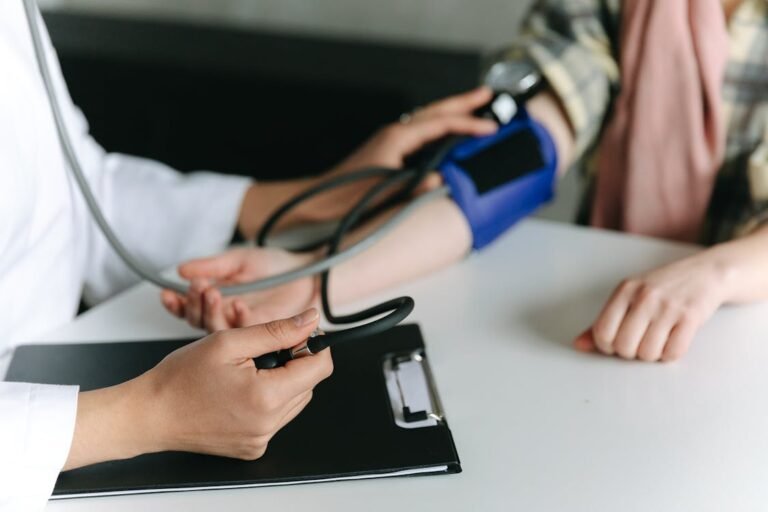Follow us and share.
How Prehypertension Can Develop into Stage I Hypertension and How to Stop It
Adopting changes in diet, physical activity, and stress management can halt the progression of prehypertension and protect cardiovascular health.

Understanding Prehypertension and Its Relationship to Hypertension
The prehypertension It is a stage prior to high blood pressure that acts as an early warning of possible cardiovascular problems. It is defined by blood pressure readings. systolic between 120 and 129 mmHg and diastolic less than 80 mmHgAlthough it is not considered a disease in itself, it can develop into grade I arterial hypertension if adequate preventive measures are not taken.
The grade I arterial hypertension (SBP between 130-139 mmHg and DBP between 80-89 mmHg) represents the first clinical level of hypertension, requiring lifestyle changes and even medical intervention in some cases. This article explores how these conditions are related, the risk factors that worsen them, and strategies to prevent their progression.
Risk Factors for Prehypertension
Prehypertension is usually the result of a combination of factors that can be controlled with a proactive approach:
- Unhealthy diet: High intakes of sodium, saturated fats, and processed foods contribute to elevated blood pressure.
- Sedentary lifestyle: Lack of physical activity decreases the heart's ability to pump blood efficiently.
- Chronic stress: Constant stress can trigger a sustained increase in blood pressure.
- Excessive consumption of alcohol and tobacco: These substances negatively affect the elasticity of the arteries and cardiovascular function.
- Family history: Genetic background also plays a significant role in the development of prehypertension.
From Prehypertension to Grade I Hypertension
The transition from prehypertension to stage I hypertension occurs when risk factors are not adequately managed, leading to progressive damage to the arteries and heart. As blood pressure increases, so does the risk of:
- Cardiovascular diseases, such as myocardial infarction.
- Chronic kidney damage due to overload of the renal system.
- Strokes caused by weakened or blocked arteries.
Important: Grade I hypertension is treatable and, in many cases, reversible if detected early.
Strategies to Prevent Evolution
Controlling prehypertension is essential to prevent its progression to more severe stages. These are some of the most effective strategies:
- Adopt a balanced diet:
- Reduce salt intake to less than 2,300 mg daily.
- Increase your intake of fruits, vegetables, whole grains, and lean proteins.
- Choose foods rich in potassium, such as bananas and spinach, which help regulate blood pressure.
- Incorporate regular physical activity:
- Get at least 150 minutes of moderate aerobic exercise a week, such as walking, swimming, or cycling.
- Combine with strength exercises to strengthen the cardiovascular system.
- Control stress:
- Practice relaxation techniques such as mindfulness, meditation, or deep breathing.
- Spend time doing activities you enjoy to improve your emotional well-being.
- Avoid harmful substances:
- Eliminate smoking and limit alcohol consumption to no more than one drink per day for women and two for men.
- Regular monitoring:
- Have your blood pressure checked frequently, especially if you have risk factors.
- Use measuring devices at home to keep track.
When to Seek Medical Help
It is crucial to seek medical attention if:
- Blood pressure remains elevated despite lifestyle changes.
- You experience symptoms such as persistent headache, dizziness, or shortness of breath.
- There is a family history of hypertension or cardiovascular disease.
A doctor may recommend additional testing and, if necessary, initiate drug treatment to control blood pressure.
Prevention as the Key to a Healthy Life
Prehypertension is an opportunity to take control of your cardiovascular health before it becomes stage I hypertension. Adopting a healthy lifestyle and regularly monitoring your blood pressure are essential steps to protect your heart and prevent future complications.
Remember: Every little change counts. Start taking care of your heart today to enjoy a long and healthy life.



